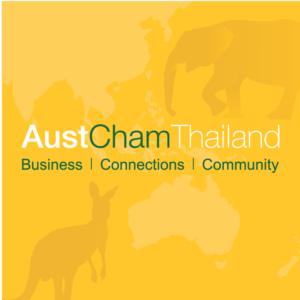Kratom (Mitragyna speciosa) was once listed as a prohibited substance under the Narcotics Act. Kratom was then removed from the narcotics list in 2021 and is now regulated under the Kratom Plant Act B.E. 2565 (2022), which allows the trading, use, import, and export of kratom. Furthermore, the Ministry of Public Health has allowed the use of kratom in food and drink, food supplements, and herbal products. Anyone who wishes to launch kratom food or herbal products must first obtain a product license from the Thai Food and Drug Administration (FDA).
On September 4, 2024, the Thai FDA announced guidelines specifically for powdered kratom leaves and kratom leaf extracts (using water or ethanol as solvents) as ingredients in food supplements. These guidelines aim to provide business operators with a clear framework for launching kratom-based food products in Thailand.
Key points from these guidelines include:
- Raw material specifications and standards: Powdered kratom leaves and kratom leaf extracts must contain at least the prescribed amount of mitragynine (one of the primary active compounds in kratom) as a marker of quality. For example, mitragynine must account for at least 1% by mass for powdered kratom leaves.
- Food supplement specification and standards: Food supplements containing powdered kratom leaves or kratom leaf extracts must not have a dosage of over 0.2 mg/day of mitragynine (including 7-hydroxymitraglynine, which may occur naturally), or 1 mg/day for food supplements containing kratom extracts that use water as a solvent. Addition of 7-hydroxymitraglynine to food supplements is prohibited.
Mitragynine content in food supplement products must not exceed the specified dosage limit. Additionally, the food supplement product must be in a ready-to-eat form (e.g., liquid, gel, tablet, or capsule).
If powdered kratom leaves or kratom leaf extracts are to be used as ingredients in food categories other than food supplements, a safety assessment must be conducted prior to their use, ensuring compliance with the necessary health and safety standards.
- Manufacturing practices: The manufacturing locations of dietary supplements containing Kratom must comply with good manufacturing practice (GMP) standards, as specified in the annex to the Ministry of Public Health Announcement (No. 420) B.E. 2563 (2020) Re: Food Production Processes, Processing Equipment/Utensils and Storage Practices.
- Labeling and warning statements: The labels of food supplements containing powdered kratom leaves or kratom leaf extracts must comply with the Notification of the Ministry of Public Health Re: Labeling and Food Supplement Products. The labels must also display the following warning statements:
- Must not be consumed continuously for more than seven days.
- Do not use this product in conjunction with other products containing kratom.
- Must not be consumed with products containing alcohol.
Additionally, there must be statements regarding prohibited usage for high-risk consumers. For example, products must not be used in patients with cardiovascular diseases, diabetes, or psychiatric disorders.
- Approval process: Requests for approval of food supplement products containing powdered kratom leaves and kratom leaf extracts can be submitted online through the Thai FDA’s e-submission system. Submissions must include the product specifications, standards, and conditions of use in accordance with the established guidelines. Additionally, a laboratory report detailing the mitragynine content must be provided to the Thai FDA during the product registration process. If the product is imported, a certificate on the food standards of the manufacturing practices of the overseas manufacturer must be provided as part of the registration process.
Kratom as an Herbal Product
In addition to food products, kratom can also be approved as an herbal product under the Thai FDA’s Herbal Product Division. The requirements for registering kratom products as herbal products are distinct and include:
- Herbal product specifications and standards: Kratom used in herbal products must adhere to strict quality and purity standards. This includes thorough testing for contaminants and verification of active ingredient concentrations. These stringent requirements ensure the safety and efficacy of kratom herbal products for consumers.
The Herbal Product Division also provides guidelines for the registration of kratom leaf concentrates extracted using water and kratom leaf aqueous solutions. The guidelines specify that the amount of mitragynine must not exceed one milligram per day.
- Manufacturing practices: Producers must adhere to good manufacturing practices (GMP) to ensure the consistency, safety, and efficacy of the herbal products. For importers, the manufacturing site is required to obtain GMP clearance verifying the standards of the overseas manufacturer, which must be equivalent or greater than the GMP standards in Thailand.
- Labeling, leaflets, and packaging: Herbal products must have clear and informative labels that include dosage instructions, potential side effects, and contraindications. Kratom product labels and leaflets must have additional warnings or precautions as required to ensure the safety of the kratom usage. For instance, kratom products classified as herbal products for health promotion must display additional warning statements similar to the statements for food supplements mentioned above. Additionally, leaflets must contain contraindications to avoid safety issues, such as prohibiting the use of kratom products in people taking anticoagulants. These statements must comply with the guidelines issued by the Herbal Product Division.
- Approval process: The approval process for herbal products involves submitting an application that includes product samples, safety data, and evidence of efficacy to the Herbal Product Division. The submitted documents must demonstrate that the products are safe for use and must provide evidence of the claimed health benefits.
Market Implications
The approval of kratom as a food or herbal product presents significant opportunities for both local and international producers. In Thailand, the number of approved kratom products remains relatively low, indicating substantial room for market expansion. Businesses can now legally cultivate, produce, and sell kratom if they adhere to the regulatory standards set by the Thai FDA. This regulatory clarity is anticipated to stimulate growth in the kratom market in terms of both domestic sales and export potential.
For further information on Thailand’s laws and regulations on kratom products, please contact Dr. Atthachai Homhuan at [email protected], Ravi Pinkoh at [email protected], or Sonatree Sehamontree at [email protected].





